I left the hostel in Killarney in bright sunshine, but twenty minutes later the sky darkened, cracked open, and it began to pour. I’d been planning a full-day hike around the lakes in the national park and then through the Gap of Dunloe. The forecast had been for sun, but this was Ireland. In winter. It didn’t look as if it would let up anytime soon, so I turned back. But the hostel I’d just left was now fully booked for the night. Cursing my own foolishness for not bringing my waterproof trousers, I stuffed my things into a large plastic bag and back into my daypack, zipped my yellow rainjacket to my chin, pulled up the hood, and set off once more.
It was 1998, and I was 24 years old. I’d graduated from college in California the year before and was traveling around the world teaching SCUBA diving. After Central America, the Caribbean, and Greece, I’d landed a job at an outdoor sports store in Galway, where I spent my days off backpacking around Ireland. I was young, innocent, and optimistic.
Getting a little lost was part of the pleasure of the journey.
I depended on luck, and expected people to be kind and everything to always work out in the end. But right then, things were not working out. I couldn’t see much past the sheet of water dripping from my hood. I’d made it to the edge of town where the Ring of Kerry road borders the national park when the downpour turned into a deluge.
Crap crap crap. Maybe I should find an other hostel and explore Killarney instead, spend the day inside at St. Mary’s Cathedral and the Museum of Irish Transport. I turned back a second time and walked a few soggy steps. But it might take hours in the rain, trying to find a bed for my budget.
I spun on my heel and headed again for the lakes, not that I’d see any of the scenery I’d heard so much about in this weather. I did this two more times—cursing, turning, and walking in different directions along the road. Unable to make up my mind and already cold and soaking wet, I stuck out my thumb.
The second car that passed—an ancient battered station wagon—pulled over to the side of the road. I ran up to the car, but couldn’t make out anything through the fogged-up window. When I opened the door, the driver smiled up at me through a long dark beard, and I realized I’d opened the driver’s side. I apologized and ran back around. Cahill—a name I had an embarassingly hard time pronouncing–told me he could drop me off at the start of the Gap. He was tall and thin, with a weathered face. Turned out he was a sheep farmer nearby, and I was surprised to learn we were the same age. Rain pounded the roof and the windshield wipers worked furiously as we chatted along the dripping green, tree-lined country road. Inside the car, it was warm and humid, and I recognized the swampy scent of peat.
“Shout you a Guinness?” Cahill asked after a while. “This is pint-and-pub-fire weather if ever I did see it.”
“How ‘bout my shout in exchange for the ride?”
“Not having it. You’re a guest, and on your tod.” He looked over, winked and grinned. “I’d be honored to show you a bit of the local craic.”
The tiny old pub was filled with smoke and loud men. It smelled of wet wool and a wood fire. Sopping jackets and hats were piled onto tables and chairs. Cahill wound his way through the crowd and approached a group at the bar, pounding each one on the back, before turning to the bartender.
“Story horse?” the bartender, a woman about my mum’s age with dark hair and a smoker’s voice, greeted him.
“Found this wee Yank out in the wet after it started bucketing down.” Cahill nodded at me. “Two pints if you please, Sheenagh.”
While we waited for the first pour to settle, Cahill introduced me to the group of men at the bar. I hopped onto a barstool, my daypack in a puddle at my feet, and answered the usual questions: Your name’s Shannon . . . like the river? What famous movie stars do you know out there in California? Do the kids surf to school? So what do you think of our green isle? I’d already learned that describing myself as Irish-American would only be met with a dimissive snort—you and every other Yank who comes over here on holiday. And it seemed even less credible when I could hardly understand a word they were saying. I’d been living in Galway for months, but it still sounded as if they were using two completely different languages—one for me, and another to talk amongst themselves. I sipped the creamy, malty beer and tried my best to follow their fast-paced singsong conversation. Whenever I was completely lost, one of them would turn to me and using slow enunciated sentences, letting me in on the punch line.
Another round of Guinnesses was set down on the bar in front of us.“Sláinte!” We raised the pints and clinked glasses, cheeks flushed from the warmth of the fire, the beer, and the company. I was still damp, but no longer minded.
Only I was starting to get worried about the long walk I had to the hostel at the end of the Gap. Hard to believe, but it seemed to be raining even harder now. I checked my wrist for the time; it would be dark in a couple of hours. My men’s dive watch (the dive watches they made for women had buttons so tiny, they’d be impossible to work with neoprene gloves on) was not exactly discrete, and Cahill caught my eye.
“Where are you staying tonight, love?”
“Black Valley Hostel.”
“You should have said! I live right by. I’ll drop you. Stall the beans and settle in!”
So we ordered bowls of steaming-hot stew—thyme-soaked lamb, chunks of buttery soft potato and carrot, all mopped up with crumbly soda bread. Each time I tried to pay, for our stews, for another round, one of the men would push my wallet away.
“Your money’s no good here.” Sheenagh, the bartender, winked at me.
I scraped up the last bit of potato from my bowl, took a long sip of Guinness, and looked around the packed, noisy pub. I’d been surrounded by Cahill’s friends at the bar, and perhaps because of the concentration required to try to follow their conversation, hadn’t noticed the dead bird in the corner. I was pretty sure it was a pheasant. Its head hung crookedly over the side of a table, one upsidedown yellow glassy eye staring in my direction.
Two sweaty, red-faced men stood over the bird, steak knives clutched in their hands. Blood pooled on the table and the floor at their feet. The men were arguing, but good-naturedly. Every so often, one or the other would plunge his knife into the pheasant’s chest, push aside the tawny speckled feathers, point and gesticulate. A small group gathered around the table would lean in closer to see, before resuming their animated debate. The pub was too crowded and loud for me to hear anything they were saying from across the room, but their gestures were fervent. Not a single one seemed to notice the occasional blood spatter from a waved knife.
Cahill explained. There’d been a hunting contest earlier that morning and both men had shot the pheasant. Now they were performing an amateur autopsy to determine which of their two bullets had been the lethal one. A bar tab was at stake.
The best travel experiences are simple. They can’t be planned. It’s just a feeling of something genuine. Knowing you’re lucky to be in exactly that place at exactly that instant. Those ridiculous, magical, perfect, accidental moments of joy are still the reason I travel.
All these years later, I carry the story of that rainy afternoon outside Killarney with me, like a small rare-colored stone. Because Ireland was the last time I really believed everything would always be OK in the end.
This was only months before I met my fiancé at a hostel when we were both backpacking through Barcelona, years before he was killed by a box jellyfish while we traveled together in Thailand. Terrible things can also happen at home. But when they happen abroad, there’s a heightened sense of loneliness, of not belonging, of bewilderment and confusion. Sean’s death is another stone I carry with me. But I never would have met him if I hadn’t been traveling, and I wouldn’t trade the time I had with him for anything in the world.
I look back at my travels in Ireland, and it surprises me now that I wasn’t even surprised then, when everything always worked out at the end of each day. With all that happened after, those experiences and memories have become much more precious. Late in the evening, when Cahill and I left that tiny old pub, the dispute over the dead bird had not been settled, but the rain had stopped at last and thousands of pinpoint stars filled the huge black sky.
Cahill dropped me in front of the hostel at the end of the Gap, wished me well, and sped off into the night. The building was quiet, but I was too giddy from Guinness and the kindness of strangers to give it much thought. I rang the bell, and rang it again. Eventually an older woman wearing curlers, a tattered robe, and slippers appeared, looking cross. I asked for a bed.
“We’re closed for the season,” she replied.
I looked around. I was in the middle of nowhere in the pitch dark. There wasn’t any other accommodation for miles and miles.
The woman sighed. “I guess we can give you a bed for the night. But there won’t be any heat. We’ve shut it off for the winter and we’ll lose money running it for one person.”
“No problem at all. Thank you so, so much.”
“You’ll be cold. I can’t help that.”
“I’ll be fine. I really appreciate it. Thank you.”
Relieved and exhausted, I washed my face and brushed my teeth. Shivering, I put on every item of clothing I had in my daypack, including my beanie. I could see my breath in the room. But I was so grateful to have a bed. I climbed under the covers and was just drifting off, when I heard a metallic whir and a cough, and the heater by my bunk sputtered to life.




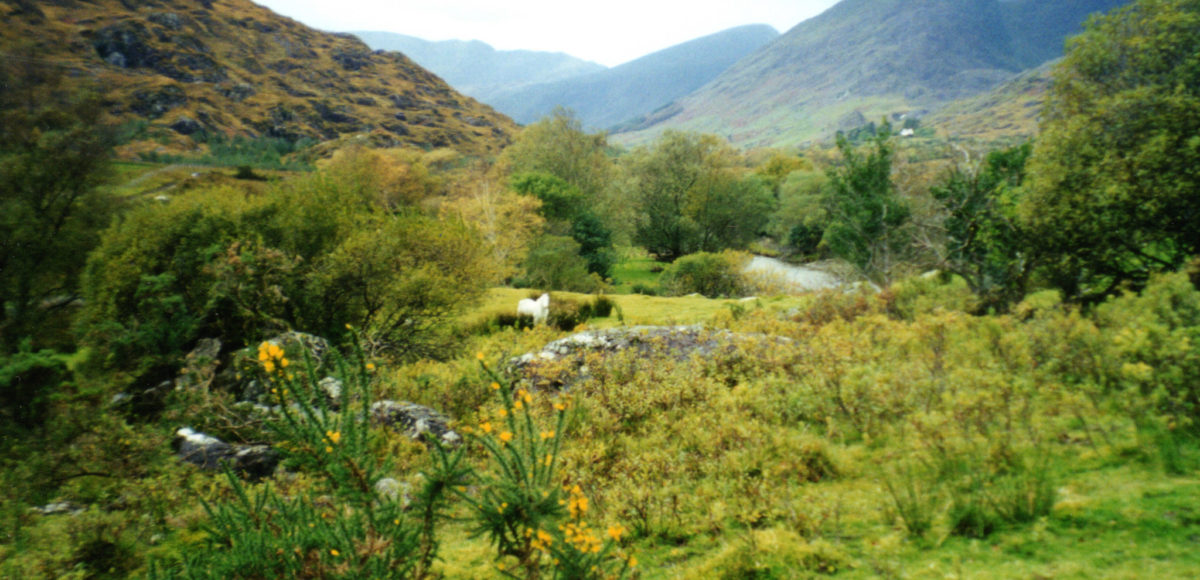
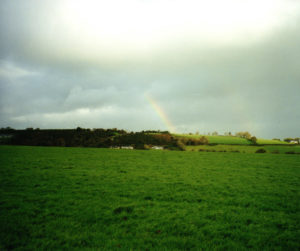
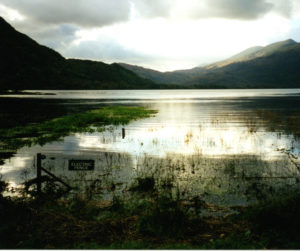
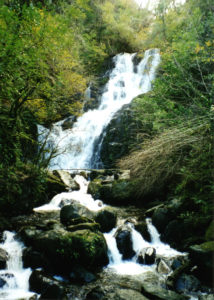
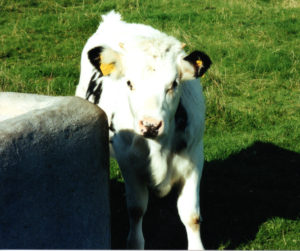
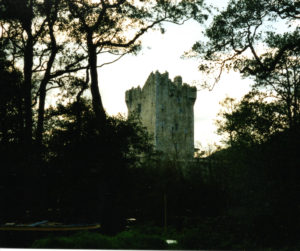
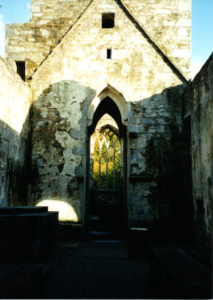
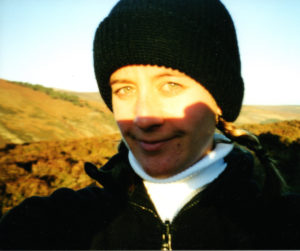
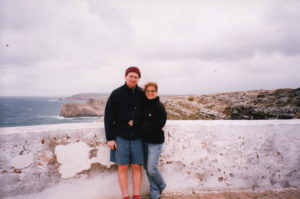
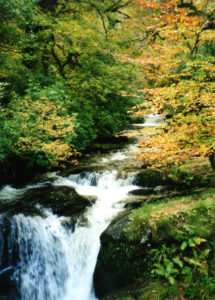
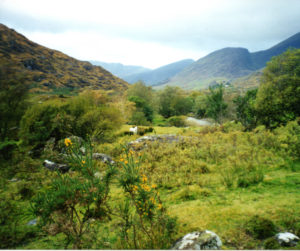
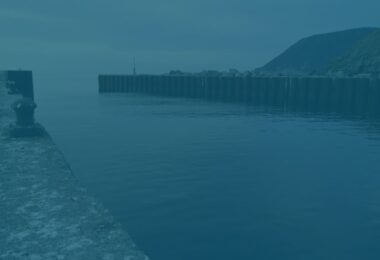
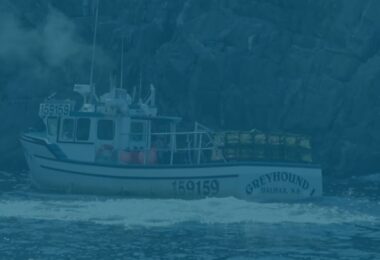
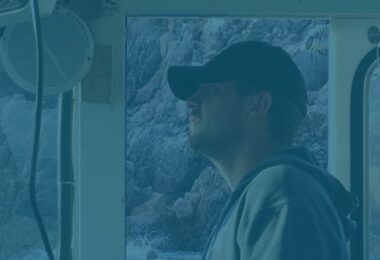
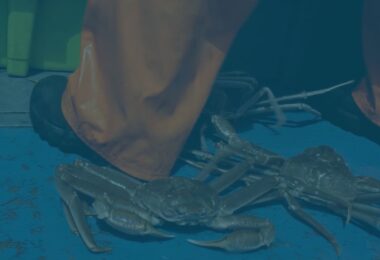
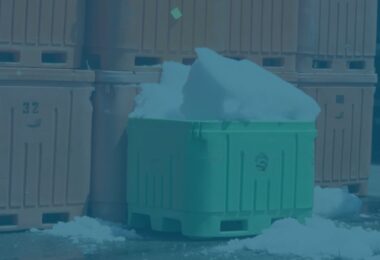
chandi | March 17, 2020
|
Fabulous!
you have no idea how much I related to this line:
“I depended on luck, and expected people to be kind and everything to always work out in the end.” that was me, in my earl y twenties going around the world on a shoe string. 🙂
SHANNON | March 20, 2020
|
THANKS SO MUCH FOR READING, AND FOR RELATING!